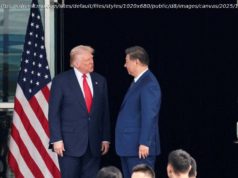 Heavy smog has blanketed a third of China’s cities, including its capital Beijing, with 62 issuing health alerts since Jan. 1, officials said. The hazardous air has forced hundreds of flight cancellations or delays and is forecast to linger into the weekend in some areas.
Heavy smog has blanketed a third of China’s cities, including its capital Beijing, with 62 issuing health alerts since Jan. 1, officials said. The hazardous air has forced hundreds of flight cancellations or delays and is forecast to linger into the weekend in some areas.
The concentration of PM2.5 particles — which pose the greatest health risks because they can become lodged in the lungs — was 475 micrograms per cubic meter near Tiananmen Square at 8 a.m. Wednesday, according to the municipal air-monitoring website. The World Health Organization recommends PM2.5 exposure of no more than 25 micrograms over a 24-hour period.
Pollution was at medium or higher levels in 186 cities Tuesday, according to the latest update issued by the Ministry of Environmental Protection. About 25 cities, including Shijiazhuang and Baoding in Hebei Province and Jinan and Dezhou in Shandong, have issued red alerts, the highest level pollution warning, prompting vehicle use restrictions and industrial production curbs, the ministry said.
In Beijing, city streets are full of pedestrians wearing masks, while many individuals and companies rely on expensive air filters to cut indoor levels of toxic air. Northern China is particularly polluted in winter because of a combination of fog and other weather conditions that trap industrial and auto emissions and those from burning millions of tons of coal used for heating in below-freezing temperatures.
Calls for the government to get tough and clear the skies has led to some punishment for companies, but local officials also must balance enforcement actions with the central government’s goals to keep economic growth humming.
Heavy pollution could remain until Saturday, officials said. Beijing, Tianjin and 20 other cities have extended their orange alerts, the second-highest level.
More than 430 flights were canceled Sunday in Beijing and neighboring Tianjin, the official Xinhua News Agency reported. More than 180 flights have been canceled in Zhengzhou, stranding 1,000 passengers in the capital of Henan, while 164 flights were scrubbed in Hebei’s capital, Shijiazhuang, local media reported.
By noon Wednesday, 14 flights had been canceled at Beijing Capital International Airport and average delays had reached 36 minutes, according to Flightaware.com.
Beijing environmental officials said Tuesday that overall air quality had improved in 2016, with the total number of “blue sky days” up 12 from 2015 and the average PM2.5 measure dropping 9.9 percent to an average of 73 micrograms.
Were you interviewed for this story? If so, please fill out our accuracy form
Send questions/comments to the editors.






